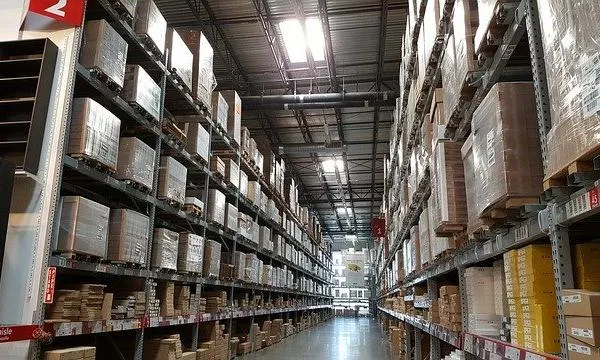
Rents for Singapore's high-spec industrial spaces decline for the first time in three years
Average monthly rent was down by 0.3% QoQ to S$3.48 per sq ft.
Savills notes that compared with the first three months, the slowdown of leasing activity in Q2/2020 better reflected the impact of COVID-19 on businesses. In conjunction with the ban on in-person property viewings during the CB period, leasing volume decreased 18.4% from a year ago to 2,353 transactions in Q2/2020.
While the number of new leases signed for multiple-user factory dropped by 21.9% YoY amid firms holding back on major relocation or expansion plans, that for single-user factory went up by 14.5% from the same period last year.
Here’s more from Savills:
The former could be due to the possibility that tenants in multiple-user factories have weaker finances than the larger companies occupying single-user premises. The impact of the lockdown may have motivated the weaker companies to throw in the towel and wait for bluer skies. The single-user factory tenants may have used this opportunity to renew their lease at more attractive rents.
Although leasing demand for warehouse also weakened by 10.0% YoY, the softness was not homogenous. Some areas like Kallang, still saw reasonable demand from industries that are active in this pandemic environment. New demand there came from those in manufacturing of essential products such as masks, gloves and micro fabric material.
The overall industrial vacancy level fell 0.2 of a percentage point (ppt) QoQ to 10.6% in Q2/2020. This stemmed from improved occupancy in single-user factory and warehouse space due to pre-commitments as well as logistics and storage uses, which mainly concentrated in West and East Planning Region. On the other hand, multiple user factory vacancy levels rose 0.4 of a ppt QoQ to 12.5% on the back of subdued take-up rate at the newly completed Bedok Food City. Notably, some existing tenants have also downsized or vacated their premises in Central Planning Region, pushing up the vacancy level within the area.
As the leasing activity slowed with the restrictions and disruptions in place, landlords were generally more flexible on rents. While rents remained depressed with JTC’s rental index falling across the board in Q2/2020, Savills average monthly rent for multiple-user factory slipped by -1.0% QoQ to S$1.73 per sq ft and that for warehouse & logistics fell 0.7% QoQ to S$1.47 per sq ft.
SALES MARKET
In the second quarter, there was a higher level of interest from some industrialists, such as frozen food manufacturers, who are looking to acquire suitable assets for their operations in the long run. This is likely to have arisen from the pandemic-led shift to frozen food consumption during the lockdown period, resulting in more stockpiling among manufacturers and suppliers to provide a buffer amid disruptions to the supply chain. Nevertheless, despite the rising buying interest in the market, a majority of them did not convert into actual sales because of a mismatch in price expectations between sellers and buyers. The total sales volume fell for four consecutive quarters to a new record low with only 130 deals in Q2/2020. The strata industrial market saw further slowdown in sales activity, with another decline of over 30% QoQ to 114 transactions. The decline in transactions corresponded with a 44.1% QoQ decrease in value to around S$97.9 million, the lowest since the GFC period in Q1/2009.
While most industrialists adopted a wait-and-see approach in anticipation of softer prices, industrial property owners are at present, still not desperate to sell their properties, especially the freehold assets which are classified as a more stable asset class and rare. Owing to their scarcity and the large pool of interested buyers, the average price in Savills’ basket of freehold industrial properties4 went up by 1.0% QoQ to S$693 per sq ft in Q2/2020.
In the current market, prices of industrial leasehold properties continued to edge downwards. Compared with properties with depleting leases, prices of properties with reasonably long lease balance of at least 30 years saw a smaller decline as buyers are largely end-users who purchase the property for their business operations in a long run. Savills’ basket of industrial properties showed that the average prices for 60-year leasehold industrial units trended downwards by 1.2% QoQ to S$429 per sq ft in Q2/2020.
Meanwhile, sellers of leasehold properties with shorter remaining leases were more willing to adjust their price expectations down by up to 15% below valuation, especially if the properties have a higher quantum value. In line with those sentiments, the average price in Savills’ basket of 30-year leasehold industrial properties was down for the third straight quarters, albeit at a slower pace of 2.2% QoQ, to S$308 per sq ft in Q2/2020.
BUSINESS PARK AND HIGH-SPECS INDUSTRIAL
The impact of the pandemic dampened business sentiments and affected the demand for business park space, with net take-up contracting for the second quarter. The islandwide vacancy rate for business park space rose by 0.8 of a ppt QoQ to 14.8% in Q2/2020. Despite the tightening of supply in Central Planning Region where Mapletree Business City and Science Park are located, weaker occupier demand around the area raised the vacancy level by 1.0 ppt QoQ to 9.6%.
Regarding rents, JTC’s business park rental index fell for the first time since Q4/2018 while Savills business park rents also fell, the first in three years. The average monthly rent in Savills basket of prime business park properties5 edged down by 0.4% QoQ to S$5.81 per sq ft as some landlords lowered their asking rents amid weaker sentiments. The older business parks bore the brunt of the downturn, with the average monthly rent in Savills basket of standard business park properties6 slipping by 0.7% QoQ to S$4.07 per sq ft.
Even though some businesses may consider relocating from office to high-specs industrial space as part of their cost restructuring measures, most of them prefer downsizing instead of incurring fit-out costs when relocating to new premises. While rents for prime high-specs industrial spaces with good accessibility and amenities have been holding up well, overall rents of high-specs industrial segment started to show signs of weakness in Q2/2020. Based on Savills basket of properties7 , the average monthly rent for high-specs industrial space was down by 0.3% QoQ to S$3.48 per sq ft, marking its first decline in the last three years.
OUTLOOK
The pandemic has led to a major economic slowdown globally, leaving many countries in the deepest recession in decades. The virus outbreak and the attendant containment measures have had a more adverse impact on the global economy than expected, with a global economic contraction projected at -4.9% this year.
Along with the deteriorating external economic environment and protracted drag on outward-oriented sectors, Singapore’s economic outlook weakened further with MTI narrowing its GDP growth forecast for 2020 to a range between -7.0% and -5.0% YoY. According to a survey from the Economic Development Board, 60% of manufacturers expect business conditions to worsen in the next six months compared to the first quarter due to weaker external demand and supply chain disruptions.
Apart from the impact of heightened regional trade tensions affecting our trade-reliant economy, the volatile biomedical manufacturing segment, lower oil prices, as well as the protracted supply chain disruption and negative demand shocks are adding further downside risks for the manufacturing sector.
More companies are embarking on cost containment and restructuring measures. As such, tenants, especially those in non-ecommerce industries and with large spaces, may consider downsizing or giving up their premises as they consolidate their business while reducing their workforce. Even though there are expected delays in completion for some projects, helping to ease the potential supply glut in the near term, occupancy and rental levels are still likely to come under more pressure, particularly for the factory segment.
Meanwhile, some segments have a better potential to recover later this year. The warehouse segment may find some support from a spike in logistics and storage needs, while the business park and high-spec industrial segments are expected to see a gradual pick-up as business sentiment improves.
Whether by industry, location, leasing period or by land tenure, the lockdown and disruption in supply chains are reforming the way players react. Locations, such as those in Jurong (the western part of Singapore) have suddenly seen a spike in interest from both buyers and tenants. Many warehouses in the west are almost full.
However, tenants are taking on short term, typically six to nine-month, leases. The floods in China are also creating supply chain issues and in turn causing cost push pressures on items from agricultural to manufactured goods. The fear of supply chain disruptions arising from natural events is forcing domestic suppliers here to build buffers. However, because they do not know how long lasting such disruptions are, they prefer to sign short-term leases which come with marginally higher rents.
Also, the drive towards the 30 by 30 goal is creating demand for industrial buildings fit for urban farming (the 30 by 30 vision is to grow enough food in Singapore to meet 30% of its nutritional needs by 2030). Industrial buildings with short land leases have seen slightly greater interest as buyers seek to arbitrage on the lease tenure, for example, by selling their existing premises which have a longer land tenure and downgrading to one with a shorter tenure.
Although the overall mood in the manufacturing sector is still dour, there is activity in the industrial and warehousing markets, especially the latter. As a result of the pandemic, and now the floods in China, the market has been thoroughly disrupted, breaking traditional relationships. It may take a while before players settle down to a level where one can anticipate their moves with a higher degree of confidence. This means that the root word amongst renters is “short-term”.



















 Advertise
Advertise





